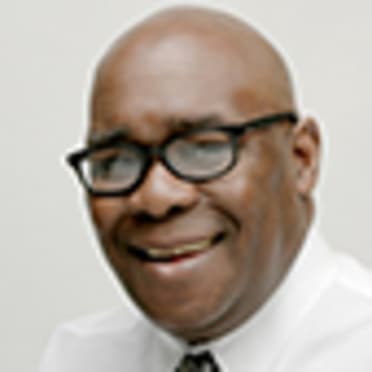Harlem B&G Club awed by Willie Mays documentary
NEW YORK -- It’s Black History Month and on Friday evening, Major League Baseball hosted about 40 children from the Boys & Girls Club of Harlem (N.Y.) at MLB headquarters for a special screening of the critically acclaimed HBO documentary “Say Hey, Willie Mays!”
Before the movie started, the film’s director, Nelson George, had a talk with the children for 10 minutes. He wanted the kids to realize how great Mays was on the field. Throughout the 1950s and ‘60s, Mays was the LeBron James of MLB, George said. Not only could he mash the baseball, Mays was outstanding defensively. People are still talking about his amazing over-the-shoulder catch in Game 1 of the 1954 World Series against the Indians. The kids who watched the film were oohing and aahing while watching Mays make that spectacular catch.
“I want you to see the process of how Mays came from being a kid in Alabama to making himself a global icon,” George told the kids.
Keion Watson, a staff member at the Boys & Girls Club, was the only person in the room who knew the name Willie Mays, but he didn’t realize how great he was until Friday.
“Mays reminds me of a Michael Jordan-type player,” Watson said. “It’s crazy seeing Yankees outfielder Aaron Judge hit his home runs, and then you had Barry Bonds. It’s crazy to see how baseball has grown over the years.
“There isn’t segregation [now]. As a pioneer of baseball, I’m sure Mays had a vision of seeing baseball as it is now. I can’t imagine being a Black person during his era. Mays does pave the way. Man, I almost shed a tear.”
George also wanted the kids to realize how much of a mentor Mays was during his playing days, mostly with the Giants. Mays learned how to be a leader from his father, William Howard Mays, Birmingham Black Barons (Negro Leagues) manager Piper Davis and former New York Giants manager Leo Durocher. All three showed Willie Mays the right way to play the game of baseball.
By the time the Giants moved to San Francisco after the 1957 season, Mays became a leader in his own right to a lot of the Latin players, including Juan Marichal and Orlando Cepeda. It’s well documented how much Mays helped Bonds and his father, Bobby Bonds, during their playing careers.
“To me, the film is about mentorship,” George said. “The idea is you get information, you listen to your elders, but you quickly become an elder as well and be part of this chain of information we love. To me, that’s what made the film work.
“When we first sat down with Willie, he kept using the phrase, ‘So-and-so took care of me and so-and-so took care of me.’ This is something important to him,” George said. “Then he said, ‘I looked out for blah-blah-blah.' I realized that was a big thing in his life.”
